General description
We are committed to bringing you greener alternative products, which adhere to one or more of The 12 Principles of Green Chemistry.This antibody is Preservative-free, produced without the harm or sacrifice of animals and exceptionally stable to allow for ambient shipping and storage if needed and thus aligns with "Waste Prevention", "Designing Safer Chemicals" and "Design for Energy Efficiency". Click here for more information.
ZooMAb® antibodies represent an entirely new generation of recombinant monoclonal antibodies.Each ZooMAb® antibody is manufactured using our proprietary recombinant expression system, purified to homogeneity, and precisely dispensed to produce robust and highly reproducible lot-to-lot consistency. Only top-performing clones are released for use by researchers. Each antibody is validated for high specificity and affinity across multiple applications, including its most commonly used application. ZooMAb® antibodies are reliably available and ready to ship when you need them.
Specificity
Clone 1C18 is a ZooMAb® Rabbit recombinant monoclonal antibody that specifically detects p90 RSK-1. It targets an epitope within 22 amino acids from the C-terminal region.
Immunogen
KLH-conjugated linear peptide corresponding to 22 amino acids from the C-terminal region of Human RSK-1.
Application
Quality Control Testing
Evaluated by Western Blotting in Raji cell lysate.
Western Blotting Analysis: A 1:1,000 dilution of this antibody detected RSK-1 in cell lysate.
Tested Applications
Western Blotting Analysis: A 1:1,000 dilution from a representative lot detected RSK-1 in C6 cell lysate.
Affinity Binding Assay: A representative lot of this antibody bound RSK-1 peptide with a KD of 6.4 x 10-8 in an affinity binding assay.
Immunocytochemistry Analysis: A 1:100 dilution from a representative lot detected RSK-1 in Raji cells.
Immunohistochemistry (Paraffin) Analysis: A 1:1,000 dilution from a representative lot detected RSK-1 in Human small intestine tissue sections.
Note: Actual optimal working dilutions must be determined by end user as specimens, and experimental conditions may vary with the end user
Target description
Ribosomal protein S6 kinase alpha-1 (UniProt: Q15418; also known as EC:2.7.11.1, S6K-alpha-1, 90 kDa ribosomal protein S6 kinase 1, p90-RSK 1, p90RSK1, p90S6K, MAP kinase-activated protein kinase 1a, MAPK-activated protein kinase 1a, MAPKAP kinase 1a, MAPKAPK-1a, Ribosomal S6 kinase 1, RSK-1) is encoded by the RPS6KA1 (also known as MAPKAPK1A, RSK1) gene (Gene ID: 6195) in human. RSK1 is a serine/threonine protein kinase that acts downstream of ERK signaling and mediates mitogenic and stress-induced activation of transcription factors CREB1, ETV1, and NUR77. It has two protein kinase domains (aa 62-321 and 418-675) and one AGC kinase C-terminal domain (aa 322-391). It regulates translation through ribosomal protein S6 (RPS6) and eukaryotic translation initiation factor 4B (EIF4B) phosphorylation, and mediates cellular proliferation, survival, and differentiation by modulating mTOR signaling and repressing pro-apoptotic function of BAD and DAPK1. In response to insulin, RSK1 phosphorylates EIF4B and enhances EIF4B affinity for the EIF3 complex and stimulates cap-dependent translation. RSK1 is also involved in the mTOR nutrient-sensing pathway by directly phosphorylating TSC2 at serine 1798 that inhibits TSC2 ability to suppress mTOR signaling. RSK1 undergoes autophosphorylation on serine 380 during its activation that allows phosphorylation at serine 221 in the N-terminal kinase domain by PDK1 leading to its activation. Four isoforms of RSK1 have been described that are produced by alternative splicing. This ZooMAb® recombinant monoclonal antibody, generated by our propriety technology, offers significantly enhanced specificity, affinity, reproducibility, and stability over conventional monoclonals. (Ref.: Roux, PP., et al. (2003). Mol. Cell Biol. 23(14); 4796-4804; Shimamura, A., et al. (2000). Curr. Biol. 10(3); 127-135).
Physical form
Purified recombinant rabbit monoclonal antibody IgG, lyophilized in PBS with 5% Trehalose, normal appearance a coarse or translucent resin. The PBS/trehalose components in the ZooMAb formulation can have the appearance of a semi-solid (bead like gel) after lyophilization. This is a normal phenomenon. Please follow the recommended reconstitution procedure in the data sheet to dissolve the semi-solid, bead-like, gel-appearing material. The resulting antibody solution is completely stable and functional as proven by full functional testing. Contains no biocide or preservatives, such as azide, or any animal by-products. Larger pack sizes provided as multiples of 25 μL.
Reconstitution
300 μg/mL after reconstitution at 25 μL per vial. Please refer to guidance on suggested starting dilutions and/or titers per application and sample type.
Storage and Stability
Recommend storage of lyophilized product at 2-8°C; Before reconstitution, micro-centrifuge vials briefly to spin down material to bottom of the vial; Reconstitute each vial by adding 25 μL of filtered lab grade water or PBS; Reconstituted antibodies can be stored at 2-8°C, or -20°C for long term storage. Avoid repeated freeze-thaws.
Legal Information
ZooMAb is a registered trademark of Merck KGaA, Darmstadt, Germany
Disclaimer
Unless otherwise stated in our catalog or other company documentation accompanying the product(s), our products are intended for research use only and are not to be used for any other purpose, which includes but is not limited to, unauthorized commercial uses, in vitro diagnostic uses, ex vivo or in vivo therapeutic uses or any type of consumption or application to humans or animals.
- UPC:
- 12352200
- Condition:
- New
- Weight:
- 1.00 Ounces
- HazmatClass:
- No
- WeightUOM:
- LB
- MPN:
- ZRB1948-25UL
- Product Size:
- 25/µL












